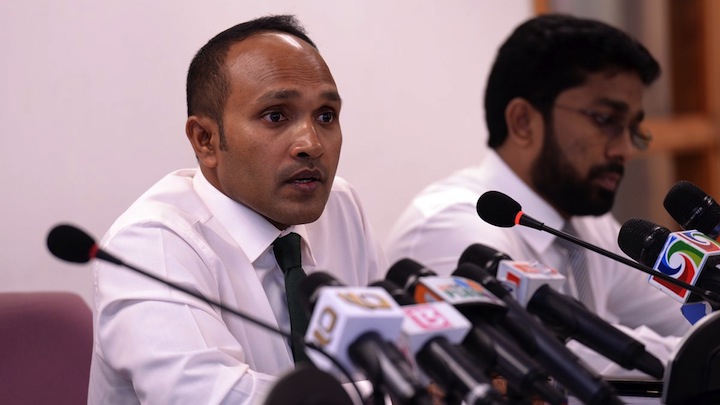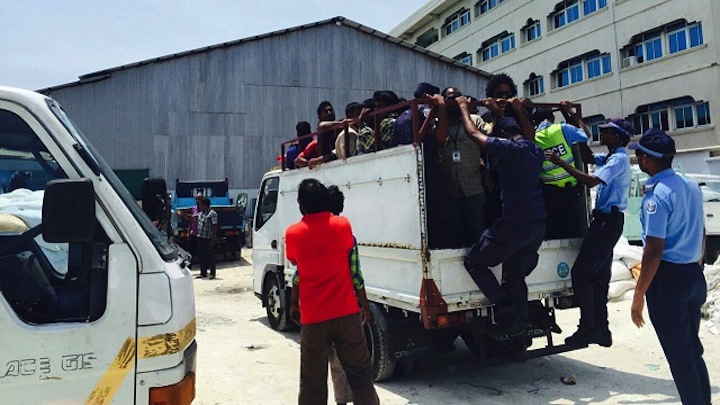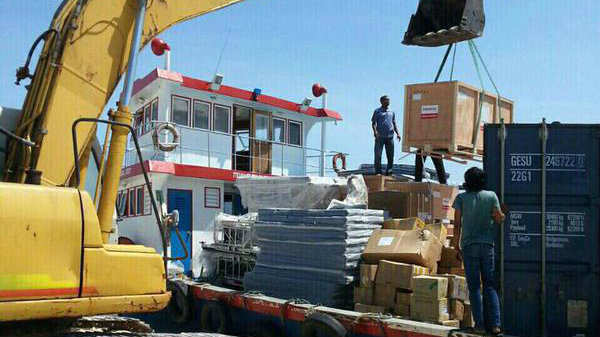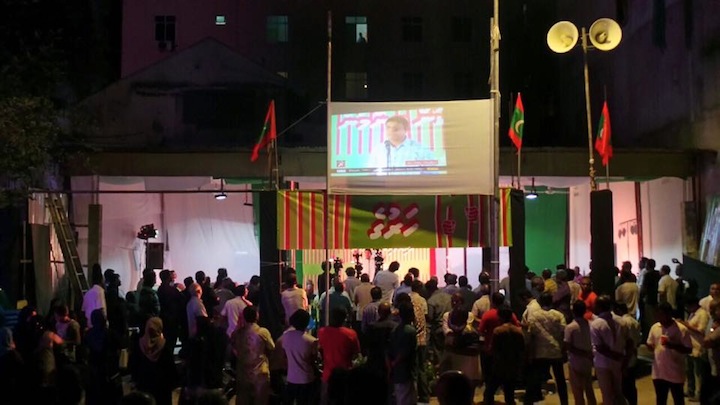Former President Mohamed Nasheed was denied the right to a fair trial ahead of his conviction on terrorism charges in March, the UK’s Bar Human Rights Committee (BHRC) has concluded in its trial observation report.
The BHRC’s findings echo widespread criticism from foreign governments, the UN, and international human rights organisations over the apparent lack of due process in the 19-day trial.
Following its third legal observation mission to the Maldives from February 26 to March 6, the BHRC found that there was “a clear appearance of bias on behalf of two of the three judges, such as to vitiate the fairness of the entire proceedings.”
Two of the three judges presiding over the trial had provided witness statements to the 2012 investigation of the case.
Nasheed was also “deprived, as a self-representing defendant, of adequate time and facilities to prepare his defence,” denied legal representation at the arraignment hearing the day after his arrest, and the criminal court failed to adequately guarantee the right to a public hearing.
The BHRC is an independent body and the international human rights arm of the Bar of England and Wales.
The mission, undertaken by Blinne Ní Ghrálaigh, BHRC vice chair and barrister at Matrix Chambers, assessed the trial on compliance with international fair trial standards, in particular Article 14 of the International Covenant on Civil and Political Rights (ICCPR).
On March 13, Nasheed was found guilty of terrorism and sentenced to 13 years in prison over the military’s detention of criminal court chief judge Abdulla Mohamed in January 2012.
“Serious concerns also arise regarding the unexplained delay of 15 months post-election in pursing criminal proceedings against Mr Nasheed, the overall speed at which the terrorism trial before the criminal court took place, once the new charges were laid, the limited time given to his defence team to prepare and the refusal by the court to permit defence witnesses to be called,” the report stated.
“In light of the above, Mr Nasheed’s conviction cannot properly be regarded as safe.”
The prosecutor general had withdrawn previous charges of illegal detention against Nasheed in early February and pressed terrorism charges on the day of his arrest (February 22). The surprise trial began the next day.
In several recommendations made to the government, the BHRC called for an investigation of “all serious allegations of violations of due process and fair trial rights through independent and impartial processes and hold to account those found responsible for those violations.”
The committee also recommended reforms to “strengthen the independence and impartiality of the judiciary.”
The BHRC advised the government to adopt a new penal code, evidence code, and criminal procedures law to codify fair trial and due process guarantees in the constitution, and “institute mandatory training in fair trial rights and guarantees, including those arising under the ICCPR, for all judges, at all levels of seniority.”
Following international criticism of Nasheed’s conviction, President Abdulla Yameen had called on all parties to respect the criminal court’s verdict.
Meanwhile, during the Maldives’ Universal Period Review in Geneva on May 6, foreign minister Dunya Maumoon claimed that Nasheed chose not to appeal his 13-year sentence and that due process concerns regarding the trial were procedural and not substantive.
Criticism of Nasheed’s trial had “mainly focused on the process and not the merits,” she said.
But Nasheed’s office contends he was deliberately denied the right to appeal after the criminal court failed to provide necessary documentation within the ten day appeal period specified by the Supreme Court.
Amnesty International had meanwhile called Nasheed conviction a “travesty of justice” while the UN human rights chief said the opposition leader was sentenced after a “hasty and apparently unfair trial” and noted “flagrant irregularities.”
The UN special rapporteur on the independence of judges and lawyers noted “serious due process violations” such as denial of the opportunity to present defence witnesses, which led her to believe “the outcome of the trial may have been pre-determined.”
Likes (3)Dislikes
(3)Dislikes (0)
(0) 




